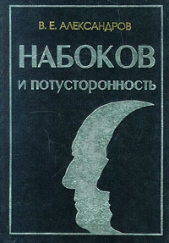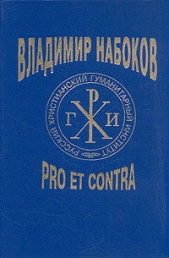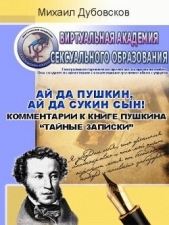On noticing that Vladimir had vanished,
Onegin, by ennui pursued again,
by Olga's side sank into meditation,
4 pleased with his vengeance.
After him Ólinka yawned too,
sought Lenski with her eyes,
and the endless cotillion
8 irked her like an oppressive dream.
But it has ended. They go in to supper.
The beds are made. Guests are assigned
night lodgings — from the entrance hall
12 even to the maids' quarters. Restful sleep
by all is needed. My Onegin
alone has driven home to sleep.
All has grown quiet. In the drawing room
the heavy Pustyakov
snores with his heavy better half.
4 Gvozdin, Buyanov, Petushkov,
and Flyanov (who is not quite well)
have bedded in the dining room on chairs,
with, on the floor, Monsieur Triquet
8 in underwaistcoat and old nightcap.
All the young ladies, in Tatiana's
and Olga's rooms, are wrapped in sleep.
Alone, sadly by Dian's beam
12 illumined at the window, poor Tatiana
is not asleep
and gazes out on the dark field.
With his unlooked-for apparition,
the momentary softness of his eyes,
and odd conduct with Olga,
4 to the depth of her soul
she's penetrated. She is quite unable
to understand him. Jealous
anguish perturbs her,
8 as if a cold hand pressed
her heart; as if beneath her an abyss
yawned black and dinned....
“I shall perish,” says Tanya,
12 “but perishing from him is sweet.
I murmur not: why murmur?
He cannot give me happiness.”
Forward, forward, my story!
A new persona claims us.
Five versts from Krasnogórie,
4 Lenski's estate, there lives
and thrives up to the present time
in philosophical reclusion
Zarétski, formerly a brawler,
8 the hetman of a gaming gang,
chieftain of rakehells, pothouse tribune,
but now a kind and simple
bachelor paterfamilias,
12 a steadfast friend, a peaceable landowner,
and even an honorable man:
thus does our age correct itself!
Time was, the monde's obsequious voice
used to extol his wicked pluck:
he, it is true, could from a pistol
4 at twelve yards hit an ace,
and, furthermore, in battle too
once, in real rapture, he distinguished
himself by toppling from his Kalmuk steed
8 boldly into the mud,
swine drunk, and to the French
fell prisoner (prized hostage!) —
a modern Regulus, the god of honor,
12 ready to yield anew to bonds
so as to drain on credit at Véry's 37
two or three bottles every morning.
Time was, he bantered drolly,
knew how to gull a fool
and capitally fool a clever man,
4 for all to see or on the sly;
though some tricks of his, too,
did not remain unchastised;
though sometimes he himself, too, got
8 trapped like a simpleton.
He knew how to conduct a gay dispute,
make a reply keen or obtuse,
now craftily to hold his tongue,
12 now craftily to raise a rumpus,
how to get two young friends to quarrel
and place them on the marked-out ground,
or have them make it up
so as to lunch all three,
and later secretly defame them
4 with a gay quip, with prate....
Sed alia tempora! Daredevilry
(like love's dream, yet another caper)
passes with lively youth.
8 As I've said, my Zarétski,
beneath the racemosas and the pea trees
having at last found shelter
from tempests, lives like a true sage,
12 plants cabbages like Horace,
breeds ducks and geese,
and teaches [his] children the A B C.
He was not stupid; and my Eugene,
while rating low the heart in him,
liked both the spirit of his judgments
4 and his sane talk of this and that.
He would frequent him
with pleasure, and therefore was not at all
surprised at morn
8 when he saw him;
the latter, after the first greeting, interrupting
the started conversation,
with eyes atwinkle, to Onegin
12 handed a billet from the poet.
Onegin went up to the window
and read it to himself.
It was a pleasant, gentlemanly,
brief challenge or cartel:
politely, with cold clearness, to a duel
4 Lenski called out his friend.
Onegin, on a first impulsion
to the envoy of such an errand
turning, without superfluous words
8 said he was “always ready.”
Zaretski got up without explanations —
did not want to stay longer,
having at home a lot of things to do —
12 and forthwith left; but Eugene,
alone remaining with his soul,
felt ill-contented with himself.
And serve him right: on strict examination,
he, having called his own self to a secret court,
accused himself of much:
4 first, it had been already wrong of him
to make fun of a timid, tender love
so casually yesternight;
and secondly: why, let a poet
8 indulge in nonsense! At eighteen
'tis pardonable. Eugene,
loving the youth with all his heart,
ought to have shown himself to be
12 no bandyball of prejudices,
no fiery boy, no scrapper, but a man
of honor and of sense.
He might have manifested feelings
instead of bristling like a beast;
he ought to have disarmed
4 the youthful heart. “But now
too late; the time has flown away....
Moreover,” he reflects, “in this affair
an old duelist has intervened;
8 he's wicked, he's a gossip, he talks glibly....
Of course, contempt should be the price
of his droll sallies; but the whisper,
the snickering of fools...”
12 And here it is — public opinion! 38
Honor's mainspring, our idol!
And here is what the world turns on!
The poet, with impatient enmity
boiling, awaits at home the answer.
And here the answer solemnly
4 by the grandiloquent neighbor is brought.
Now, what a boon 'tis for the jealous one!
He had kept fearing that the scamp
might joke his way out somehow,
8 a trick devising and his breast
averting from the pistol.
The doubts are now resolved:
tomorrow to the mill they must
12 drive before daybreak,
at one another raise the cock,
and at the thigh or at the temple aim.
Having decided to detest
the coquette, boiling Lenski did not wish
to see before the duel Olga.
4 The sun, his watch he kept consulting;
at last he gave it up —
and found himself at the fair neighbors'.
He thought he would embarrass Ólinka,
8 confound her by his coming;
but nothing of the sort: just as before
to welcome the poor songster
Olinka skipped down from the porch,
12 akin to giddy hope,
spry, carefree, gay — in fact, exactly
the same as she had been.
“Why did you vanish yesternight so early?”
was Olinka's first question.
In Lenski all the senses clouded,
4 and silently he hung his head.
Jealousy and vexation disappeared
before this clarity of glance,
before this soft simplicity,
8 before this sprightly soul!...
He gazes with sweet tenderness;
he sees: he is still loved!
Already, by remorse beset,
12 he is prepared to beg her pardon,
he quivers, can't find words:
he's happy, he is almost well....
And pensive, spiritless again
before his darling Olga,
Vladimir cannot make himself remind her
4 of yesterday;
“I,” he reflects, “shall be her savior.
I shall not suffer a depraver
with fire of sighs and compliments
8 to tempt a youthful heart,
nor let a despicable, venomous
worm gnaw a lily's little stalk,
nor have a blossom two morns old
12 wither while yet half blown.”
All this, friends, meant:
I have a pistol duel with a pal.
If he had known what a wound burned
the heart of my Tatiana! If Tatiana
had been aware, if she
4 could have known that tomorrow
Lenski and Eugene
were to compete for the tomb's shelter,
ah, then, perhaps, her love
8 might have united the two friends again!
But none, even by chance, had yet discovered
that passion.
Onegin about everything was silent;
12 Tatiana pined away in secret;
alone the nurse
might have known — but she was slow-witted.
All evening Lenski was abstracted,
now taciturn, now gay again;
but he who has been fostered by the Muse
4 is always thus; with knitted brow
he'd sit down at the clavichord
and play but chords on it;
or else, his gaze directing toward Olga,
8 he'd whisper, “I am happy, am I not?”
But it is late; time to depart. In him
the heart contracted, full of anguish;
as he took leave of the young maiden,
12 it seemed to break asunder.
She looks him in the face. “What is the matter with you?”
“Nothing.” And he makes for the porch.
On coming home his pistols he inspected,
then back into their case
he put them, and, undressed,
4 by candle opened Schiller;
but there's one thought infolding him;
the sad heart in him does not slumber:
Olga, in beauty
8 ineffable, he sees before him.
Vladimir shuts the book,
takes up his pen; his verses —
full of love's nonsense — sound
12 and flow. Aloud
he reads them in a lyric fever,
like drunken D[elvig] at a feast.
The verses chanced to be preserved;
I have them; here they are:
Whither, ah! whither are ye fled,
4 my springtime's golden days?
“What has the coming day in store for me?
In vain my gaze attempts to grasp it;
in deep gloom it lies hidden.
8 It matters not; fate's law is just.
Whether I fall, pierced by the dart, or whether
it flies by — all is right:
of waking and of sleep
12 comes the determined hour;
blest is the day of cares,
blest, too, is the advent of darkness!
“The ray of dawn will gleam tomorrow,
and brilliant day will scintillate;
whilst I, perhaps — I shall descend
4 into the tomb's mysterious shelter,
and the young poet's memory
slow Lethe will engulf;
the world will forget me; but thou,
8 wilt thou come, maid of beauty,
to shed a tear over the early urn
and think: he loved me,
to me alone he consecrated
12 the doleful daybreak of a stormy life!...
Friend of my heart, desired friend, come,
come: I'm thy spouse!”
Thus did he write, “obscurely
and limply” (what we call romanticism —
though no romanticism at all
4 do I see here; but what is that to us?),
and finally, before dawn, letting sink
his weary head,
upon the fashionable word
8 “ideal,” Lenski dozed off gently;
but hardly had he lost himself
in sleep's bewitchment when the neighbor
entered the silent study
12 and wakened Lenski with the call,
“Time to get up: past six already.
Onegin's sure to be awaiting us.”
But he was wrong: at that time Eugene
was sleeping like the dead.
The shadows of the night now wane,
4 and Vesper by the cock is greeted;
Onegin soundly sleeps away.
By now the sun rides high,
and shifting flurries
8 sparkle and spin; but still his bed
Onegin has not left,
still slumber hovers over him.
Now he awakes at last
12 and draws apart the curtain's flaps;
looks — and sees that already
it is long since time to drive off.
Quickly he rings — and his French valet,
Guillot, comes running in,
offers him dressing gown and slippers,
4 and hands him linen.
Onegin hastes to dress,
orders his valet to get ready
to drive together with him and to take
8 along with him also the combat case.
The racing sleigh is ready; in he gets;
flies to the mill. Apace they come.
He bids his valet carry after him
12 Lepage's 39 fell tubes
and has the horses moved away
into a field toward two oaklings.
On the dam leaning, Lenski had been waiting
impatiently for a long time;
meanwhile Zaretski, a rural mechanic,
4 with the millstone was finding fault.
Onegin with apologies came up.
“But where,” quoth with amazement
Zaretski, “where's your second?”
8 In duels classicist and pedant, he
liked method out of feeling and allowed
to stretch one's man not anyhow
but by the strict rules of the art
12 according to all the traditions
of ancientry
(which we must praise in him).
“My second?” Eugene said.
“Here's he: my friend, Monsieur Guillot.
I don't foresee
4 objections to my presentation:
although he is an unknown man,
quite surely he's an honest chap.”
Zaretski bit his lip. Onegin
8 asked Lenski: “Well, are we to start?”
“Let's start if you are willing,” said
Vladimir. And they went
behind the mill.
12 While, at a distance, our Zaretski and the “honest chap”
enter into a solemn compact,
the two foes stand with lowered eyes.
Foes! Is it long since bloodthirst
turned them away from one another?
Is it long since they shared their hours of leisure,
4 meals, thoughts, and doings
in friendliness? Now, wickedly,
similar to hereditary foes,
as in a frightful, enigmatic dream,
8 in silence, for each other they
prepare destruction coolly....
Should they not burst out laughing while
their hand is not yet crimsoned?
12 Should they not amiably part?...
But wildly beau-monde enmity
is of false shame afraid.
The pistols now have gleamed. The mallet clanks
against the ramrod. The balls go
into the polyhedral barrel,
4 and the cock clicks for the first time.
The powder in a grayish streamlet
now pours into the pan. The jagged,
securely screwed-in flint
8 anew is drawn back. Disconcerted
Guillot behind a near stump takes his stand.
The two foes shed their cloaks.
Zaretski paces off thirty-two steps
12 with excellent accuracy; his friends
apart he places at the farthest mark,
and each takes up his pistol.
“Now march.” The two foes, coolly,
not aiming yet,
with firm tread, slowly, steadily
4 traversed four paces,
four mortal stairs.
His pistol Eugene then,
not ceasing to advance,
8 gently the first began to raise.
Now they have stepped five paces more,
and Lenski, closing his left eye,
started to level also — but right then
12 Onegin fired.... The clock of fate
has struck: the poet
in silence drops his pistol.
Softly he lays his hand upon his breast
and falls. His misty gaze
expresses death, not pain.
4 Thus, slowly, down the slope of hills,
shining with sparkles in the sun,
a lump of snow descends.
Deluged with instant cold,
8 Onegin hastens to the youth,
looks, calls him... vainly:
he is no more. The young bard has
found an untimely end!
12 The storm has blown; the beauteous bloom
has withered at sunrise; the fire
upon the altar has gone out!...
Stirless he lay, and strange
was his brow's languid peace.
Under the breast he had been shot clean through;
4 steaming, the blood flowed from the wound.
One moment earlier
in this heart inspiration,
enmity, hope, and love had throbbed,
8 life effervesced, blood burned;
now, as in a deserted house,
all in it is both still and dark,
it has become forever silent.
12 The window boards are shut. The panes with chalk
are whitened over. The chatelaine is gone.
But where, God wot. All trace is lost.
With an insolent epigram
'tis pleasant to enrage a bungling foe;
pleasant to see how, bending stubbornly
4 his buttsome horns, he in the mirror
looks at himself involuntarily
and is ashamed to recognize himself;
more pleasant, friends, if, as the fool he is,
8 he howls out: It is I!
Still pleasanter — in silence to prepare
an honorable grave for him
and quietly at his pale forehead
12 aim, at a gentlemanly distance;
but to dispatch him to his fathers
will hardly pleasant be for you.
What, then, if by your pistol
be smitten a young pal
who with a saucy glance or repartee
4 or any other bagatelle
insulted you over the bottle,
or even himself, in fiery vexation,
to combat proudly challenged you?
8 Say: what sensation
would take possession of your soul
when, motionless upon the ground,
in front of you, with death upon his brow,
12 he by degrees would stiffen,
when he'd be deaf
and silent to your desperate appeal?
In anguish of the heart's remorse,
his hand squeezing the pistol,
at Lenski Eugene looks.
4 “Well, what — he's dead,” pronounced the neighbor.
Dead!... With this dreadful interjection
smitten, Onegin with a shudder
walks hence and calls his men.
8 Zaretski carefully lays on the sleigh
the frozen corpse;
home he is driving the dread lading.
Sensing the corpse,
12 the horses snort and jib,
with white foam wetting the steel bit,
and like an arrow off they fly.
My friends, you're sorry for the poet:
in the bloom of glad hopes,
not having yet fulfilled them for the world,
4 scarce out of infant clothes,
withered! Where is the ardent stir,
the noble aspiration
of young emotions and young thoughts,
8 exalted, tender, bold?
Where are love's turbulent desires,
the thirst for knowledges and work,
the dread of vice and shame,
12 and you, fond musings,
you, [token] of unearthly life,
you, dreams of sacred poetry!
Perhaps, for the world's good
or, at the least, for glory he was born;
his silenced lyre might have aroused
4 a resonant, uninterrupted ringing
throughout the ages. There awaited
the poet, on the stairway of the world,
perhaps, a lofty stair.
8 His martyred shade has carried
away with him, perhaps,
a sacred mystery, and for us
dead is a life-creating voice,
12 and to his shade beyond the tomb's confines
will not rush up the hymn of races,
the blessing of the ages.
And then again: perhaps,
an ordinary lot awaited
the poet. Years of youth would have elapsed:
4 in him the soul's fire would have cooled.
He would have changed in many ways,
have parted with the Muses, married,
up in the country, happy and cornute,
8 have worn a quilted dressing gown;
learned life in its reality,
at forty, had the gout,
drunk, eaten, moped, got fat, decayed,
12 and in his bed, at last,
died in the midst of children,
weepy females, and medicos.
But, reader, be it as it may,
alas, the young lover, the poet,
the pensive dreamer, has been killed
4 by a friend's hand!
There is a spot: left of the village
where inspiration's nursling dwelt,
two pine trees grow, united at the roots;
8 beneath them have meandered streamlets
of the neighboring valley's brook.
'Tis there the plowman likes to rest
and women reapers come to dip
12 their ringing pitchers in the waves;
there, by the brook, in the dense shade
a simple monument is set.
Beneath it (as begins to drip
spring rain upon the herb of fields)
the herdsman, plaiting his pied shoe of bast,
4 sings of the Volga fishermen;
and the young townswoman who spends
the summer in the country,
when headlong on horseback, alone,
8 she scours the fields,
before it halts her steed,
tightening the leathern rein;
and, turning up the gauze veil of her hat,
12 she reads with skimming eyes
the plain inscription — and a tear
dims her soft eyes.
And at a walk she rides in open champaign,
sunk in a reverie;
a long time, willy-nilly,
4 her soul is full of Lenski's fate;
and she reflects: “What has become of Olga?
Did her heart suffer long?
Or did the season of her tears soon pass?
8 And where's her sister now? And where, that shunner
of people and the world,
of modish belles the modish foe,
where's that begloomed eccentric,
12 the slayer of the youthful poet?”
In due time I shall give you an account
in detail about everything.
But not now. Though with all my heart
I love my hero;
though I'll return to him, of course;
4 but now I am not in the mood for him.
The years to austere prose incline,
the years chase pranksome rhyme away,
and I — with a sigh I confess —
8 more indolently dangle after her.
My pen has not its ancient disposition
to mar with scribblings fleeting leaves;
other chill dreams,
12 other stern cares,
both in the social hum and in the still
disturb my soul's sleep.
I have learned the voice of other desires,
I've come to know new sadness;
I have no expectations for the first,
4 and the old sadness I regret.
Dreams, dreams! Where is your dulcitude?
Where is (its stock rhyme) juventude?
Can it be really true
8 that withered, withered is at last its garland?
Can it be true that really and indeed,
without elegiac conceits,
the springtime of my days is fled
12 (as I in jest kept saying hitherto),
and has it truly no return?
Can it be true that I'll be thirty soon?
So! My noontide is come, and this
I must, I see, admit.
But, anyway, as friends let's part,
4 O my light youth!
My thanks for the delights,
the melancholy, the dear torments,
the hum, the storms, the feasts,
8 for all, for all your gifts
my thanks to you. In you
amidst turmoils and in the stillness
I have delighted... and in full.
12 Enough! With a clear soul
I now set out on a new course
to rest from my old life.
Let me glance back. Farewell now, coverts
where in the backwoods flowed my days,
fulfilled with passions and with indolence
4 and with the dreamings of a pensive soul.
And you, young inspiration,
stir my imagination,
the slumber of the heart enliven,
8 into my nook more often fly,
let not a poet's soul grow cold,
callous, crust-dry,
and finally be turned to stone
12 in the World's deadening intoxication
in that slough where with you
I bathe, dear friends! 40



























